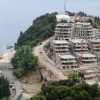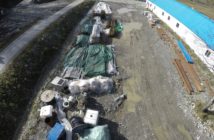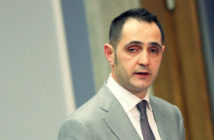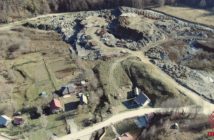 Podgorica, 23 January 2011 – Instead of coming clean with concrete facts about his involvement in the Zavala affair, former Urban Planning Minister Branimir Gvozdenović has once again treated the Montenegrin public to stories about the “high-level results” that his ministry achieved under his leadership.
Podgorica, 23 January 2011 – Instead of coming clean with concrete facts about his involvement in the Zavala affair, former Urban Planning Minister Branimir Gvozdenović has once again treated the Montenegrin public to stories about the “high-level results” that his ministry achieved under his leadership.
The former minister is proud that after two mandates Montenegro now possesses “the systemic foundations for eliminating illegal construction.” Translated into layman’s terms – i.e. freeing the language from the former minister’s demagogy – this basically means that we now have laws and regulations that nobody implements. Nevertheless it is interesting to hear Gvozdenović say that we now have ‘foundations,’ even though in the past we had actual victories in the fight against illegal construction.
The ‘global standards’ that Gvozdenović cites loosely certainly don’t include the practice of watching something being built illegally for a year and then issuing a retroactive permit for its legalization (and Zavala wasn’t the only case where this was done).
There is no doubt that the former minister is proud of what he accomplished, just as domestic and foreign tycoons are proud of him and thank-full to him for the thousands of square meters that he was able to legalize with a stroke of his pen.
However, besides that fact that he’ll be remembered as the minister that presided over 100,000 illegally built objects, Gvozdenović is still not clear on why he should answer to the relevant state institutions. Nor does he understand why he should answer before Montenegro’s public which has the right to know what his role was in the Zavala affair.
Contrary to Gvozdenović’s claims, MANS has no intention of replacing any existing state institutions, though sadly for him it does intend to continue monitoring the problem of illegal construction in Montenegro.
It is for this reason that MANS once again calls upon former minister Gvozdenović to stand before Montenegro’s public and explain how he managed to sign a retroactive building permit in December 2008 (nearly a year after construction had already begun on the Zavala peninsula). He could also perhaps explain to the public whether or not this is normal practice in other countries.
We call on the former minister to also clarify whether or not he was aware of the fact that apartments for residential use were to be found on the Zavala peninsula even though only tourist facilities were foreseen under the existing urban plans. He could also clarify the concrete actions his ministry took to prevent illegal construction.
We call on Gvozdenović to show us the laws or regulations that allows for legalization of buildings to occur through the issuing of permits for reconstruction/expansion, like the one he signed for the illegally erected seven story building in Bar.
Given that during all of the above affairs Gvozdenović was the most senior figure responsible for urban planning in Montenegro, it is naive to believe that he had no influence on key actors from his position. In societies regulated by the law it would be natural for his ministerial influence to lead towards immediate action aimed at prosecuting those who violated the law. Unfortunately, this doesn’t seem to have been the case in Montenegro.
Therefore we totally understand his anxiety and his need to hide behind demagogic proclamations. Nevertheless, we call on Gvozdenović to realize the importance of coming clean before the public on his role in the Zavala affair.



